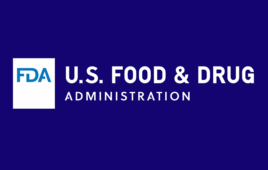
(Image from Emerson)
Faced with a growing number of coronavirus cases and a shortage of personal protective equipment (PPE), the FDA has extended emergency use authorizations (EUAs) to certain surgical masks that are not protective against small airborne particles.
Unlike N95 and some KN95 respirators, these masks “may be effective in blocking splashes and large particle droplets,” the agency said last week. The FDA considers these surgical masks PPE because they are intended to be used to protect healthcare workers from infectious disease hazards. However, because of the loose fit between the mask surface and the user’s face, a surgical mask may not protect the wearer from inhaling smaller airborne particles and should not be used in high infection-risk conditions, including aerosol-generating procedures such as placing a patient on a ventilator.
The known and potential benefits of the authorized surgical masks, when used according to the scope of the EUA, outweigh the known and potential risks, according to the agency.
In order to have their mask considered for inclusion in the EUA, a manufacturer must provide test reports that demonstrate that the surgical mask meets certain performance criteria. More information is available here.


